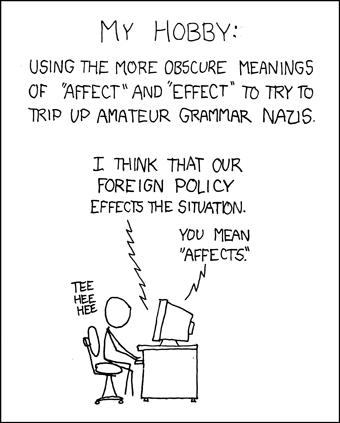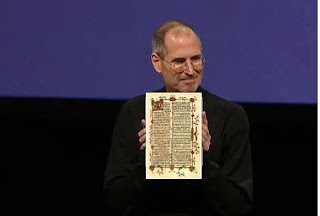The May, 1940 Dunkirk evacuation,
Operation Dynamo, has inspired a unique subset of children's fiction. A rough search online throws up about a dozen titles, most of them highly regarded or at least well-remembered.
While writing about the events for this year's anniversary,
here, I was reminded of a title I'd read myself as a kid. The acid test was that the essentials of the plot stayed with me, even though I'd completely forgotten the title and author.
Some searching (again online) tracked it down: it was the 1967 work
The Dolphin Crossing by
Jill Patton-Walsh. Ironically, after getting a copy from my local library on inter-library loan (Carnegie's '
internet'), we realised that Bev had an adult fiction book by the same author on the table, purely by chance, also from the library.
 The 1974 Macmillan cover.
The 1974 Macmillan cover.After moving it from table to book pile and on to other places around the house, I finally read it over the last few days. Perhaps my reluctance to re-read it was wariness about potentially losing the magic of a book I'd discovered and enjoyed as a child. Thankfully that was not the case.
The Dolphin Crossing is a tightly plotted, tough and concise work. It tells the story of two boys 'safe' in England who make friends as the Germans advance through the
Blitzkrieg and surround the British army at Dunkirk. Getting an idea of what's going on, they take John's father's small powerboat across the Channel and help in rescuing the soldiers. The narrative structure does not fulfil your lazy expectations - so common in formulaic storytelling these days, and there are some shocks. I'll say now, before moving on to potential plot spoilers, that it's highly recommended for children and adults as an insight to the reality of those tough days off a French beach.
The author manages on that tricky line between sanitising for a children's audience (actually for parents; children seem able to handle any amount of fictional blood and guts, injustice and so forth) and presenting what the reality may have been for a couple of boys taking their boat into this war zone. Another theme is that of the conscientious objector. And as this review
here notes, the view of those conscientious objectors was very different in 1940 and the 1960s.
(Don't go further than here if you don't want some big clues as to what happens.)
The ending is both credible, upsetting and open-ended as the reality was, and is in such real situations. An online discussion
here focuses on the 'obligation' of an author to provide what I'd call a 'neat' if not happy ending. (This same discussion touches on several other
books about the story of Dunkirk.) The discussion puts a formulaic expectation about fiction above narrative, especially a narrative told using fiction as 'truth', seeming closer to the reality than any report of the real events could be. Unpalatable though the ending is, it rings true. Changing it would equate in anticlimax to the Victorian 'happy ending' version of
Romeo and Juliet.
Much of the book focuses on build-up: to Dunkirk (although we, and the characters, don't realise that Dunkirk is the storm that's coming). Wrapped in a believable narrative, the focus is on the boy's day-to-day life and their reactions and maturing in facing the challenges of civilians in wartime. The author created one boy as the sailing son of the coastal manor house, his new friend a London evacuee. What could have been a cliché on the level of
Lady and the Tramp is neatly avoided, and while both boys are more idealistically-driven than any I've encountered, they are both rounded, credible and very human characters, as are those around them. Only the fathers are stock characters, mostly absent.
It is only in Chapter 12 that they arrive at Dunkirk, three-quarters of the way through the book.
Now they were moving in southwards, and that great cloud of black smoke a few miles to the right must mask the town and port of Dunkirk.
The sun was shining. The whole scene looked like one of those great paintings of sea-battles, with modern ships instead of galleons. All around them, up and down the coast as far as they could see, there we're ships of all sizes. Big naval ships painted silver-grey were standing off-shore, and among them a motley collection of cargo and passenger ships. Beyond them was a stretch of patchy water, blue and indigo, and green in the warm light. And across these wide shallows hundreds of little ships were swarming. There were wrecks too; small boats capsized and drifting, and larger ones grounded…
Prior to that is all build-up; including two passages on the nature of courage. The first shows both how far from a
Boy's Own version this is and that it had to be written by a sensitive, in this case, female, author, who had been a child herself in wartime Britain. John, at home, hears a radio report, and realises that 'our' front has collapsed, and that the Germans are winning.
John sat still. Fear, he remembered, from a lesson in biology in school, is a protective mechanism. Some chemical is pumped into the bloodstream, and it makes you feel like this, and produces the necessary action - usually flight. In the case of a chameleon, change of colour to match the surroundings; in the case of a hedgehog, rolling into a bail; in the case of soldiers, fighting back; in the case of young boys and women sitting at home in a country at war, no action is appropriate. But the chemical in the bloodstream, which does not understand this, continues to produce a feeling of acute discomfort, till action is taken.
He was trembling. When he noticed it he felt a wave of contempt. He set himself to stop, and in a few moments was still, and rigid in his chair. Then he determinedly ate another mouthful of bread and marmalade. He would be in the navy one day, able to fight back, he reminded himself. Then he stopped over the thought. He and Pat would be able to fight; his mother and Mrs Riley would always be in this horrible sitting-and-waiting trap. For women fear was always a thing to be suffered, never a thing to act upon. He was awed. It occurred to him for the first time that his mother was as brave as his father.
I marked this passage for mention in the review before, intriguingly, arriving at another on the same topic. I'd carried this concept with me to this day since reading it here; it was startling to realise where I'd taken (what I still regard as an excellent concept) from.
Of course, Pat was being very plucky about it ... but there was far worse to come. John's father had told him once, talking about Crossman, that courage wasn't something you always had lots of, or always had none of; courage was like water in a bucket - you had a certain amount, and it got used up. The bravest man on earth could run out of it, if things went on too long, Daddy said, and it could take years to get the bucket filled up again.
It may be important to note that this isn't a moralising tale, despite perhaps the impression given by the extracts above. It can be best summarised as a fictional sketch of the reality of Dunkirk. It is solidly anchored in the facts of those days and that battle; one of the key ships the boys work with is
HMS Wakeful, and her real history is crucial to the story -- and the theme about the futility and waste of war. Other than the youth of the protagonists, there's nothing to say it's a book only for children.
 HMS Wakeful. Via Wikipedia
HMS Wakeful. Via WikipediaIt is, I think, ironic that the edition the library got has a 'Goldfields' stamp (for the local Victoria, Australian library network) on the front; in so many ways the story seems as far from where this normally sits as fantasy fiction does from our reality. Equally far flung is
this, a much more academic review of
The Dolphin Crossing [warning plot spoilers] hosted on an Australian university website for an academic based in Western Canada -- and all about a British story set off the coast of France.
But as was noted recently in
History Today magazine, children (and adults) need to encounter experience far removed from their own; that 'relevant' is a negation of the diversity of experience we need; and that fiction, and history (as here) can enable better understanding, mental tools and, yes, empathy and humanity. It may have taken about 30 years to complete, but that was a re-reading which was worthwhile and a review well worth doing.
James
























